Popular Animal
#1
The Majestic Lion: King of the Jungle
In the vast and intricate tapestry of the animal kingdom, one creature stands out as the undisputed ruler of the wild - the lion. With its regal demeanor and awe-inspiring presence, the lion has long been celebrated as the King of the Jungle. In this article, we delve into the world of this magnificent big cat, exploring its characteristics, behavior, and conservation status.
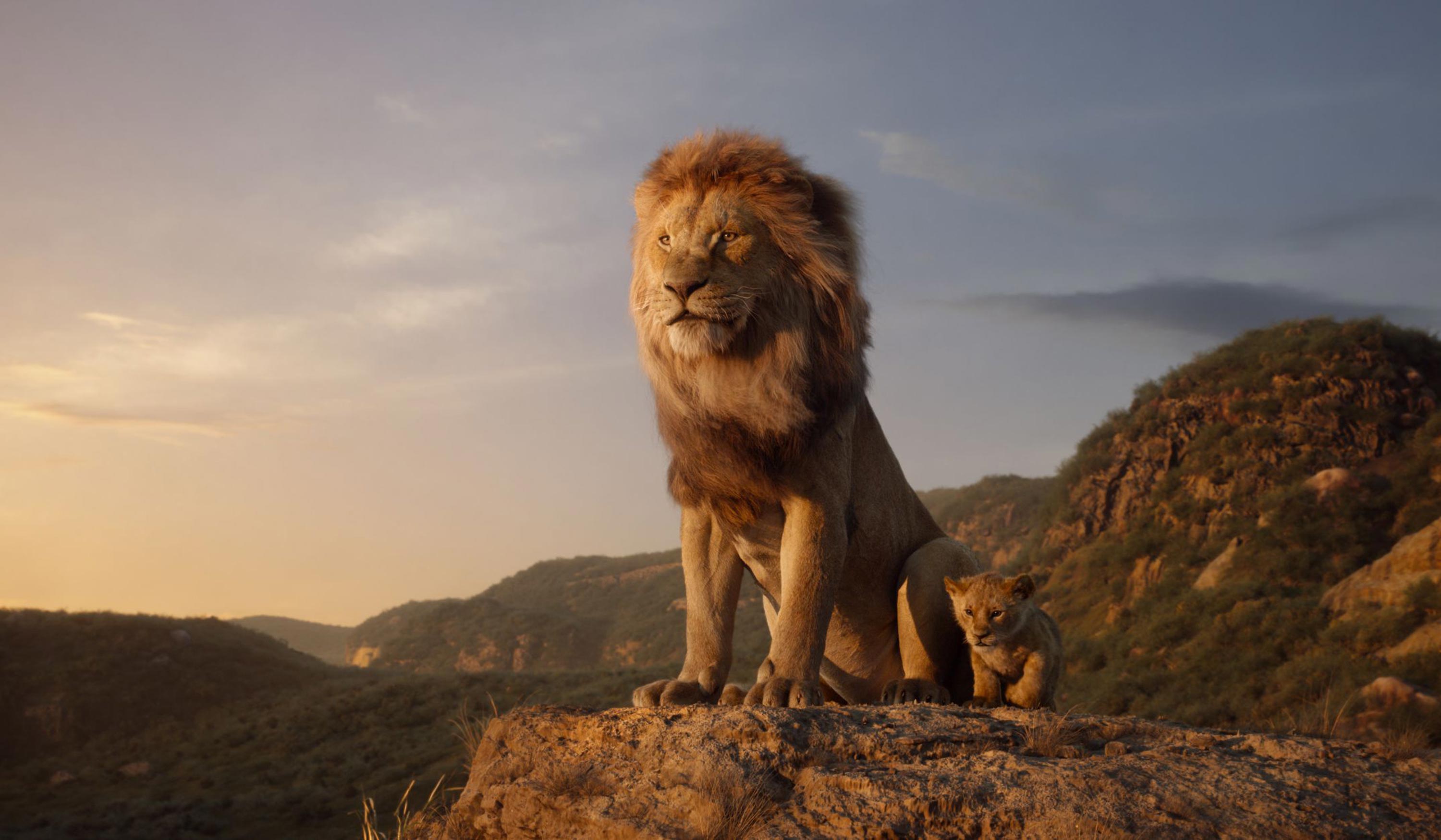
The lion, scientifically known as Panthera leo, is a large carnivorous mammal native to Africa. These majestic creatures are instantly recognizable by their golden coats, shaggy manes (in males), and a powerful, muscular build. Adult males can weigh up to 250 kg (550 lbs) and measure around 1.2 meters (4 feet) in height at the shoulder, making them one of the largest big cat species.

One of the most iconic features of the lion is its social structure. Lions are unique among the big cats in that they live in prides, which are family groups consisting of related females, their cubs, and a coalition of males. This social structure is essential for their survival, as it allows them to hunt cooperatively, defend their territory, and protect their young.

Lions are apex predators, meaning they are at the top of the food chain in their habitat. Their diet primarily consists of large ungulates, such as zebras, wildebeests, and buffalo. Lions are known for their remarkable hunting skills, often employing teamwork to bring down prey much larger than themselves.

Sadly, the King of the Jungle faces numerous threats today. Habitat loss due to human encroachment, poaching for body parts and trophy hunting, and conflicts with local communities have taken a toll on lion populations. As a result, lions are listed as vulnerable by the International Union for Conservation of Nature (IUCN).

Efforts are being made to conserve these magnificent creatures. National parks and wildlife reserves in Africa provide protected spaces for lions to thrive, and conservation organizations work tirelessly to raise awareness about their plight and fund conservation initiatives.

In conclusion, the lion is not merely a symbol of strength and power but a vital part of our planet's biodiversity. As we strive to protect the natural world and its inhabitants, let us not forget to stand up for the King of the Jungle, ensuring that future generations can continue to admire and be inspired by these majestic creatures.
#2
The Markhor: The Majestic Mountain Goat of Pakistan
Nestled high in the rugged and remote mountain ranges of Pakistan, one of the world's most extraordinary and elusive creatures roams the rocky slopes - the Markhor. This enigmatic species of wild goat has captivated the imagination of nature enthusiasts and conservationists alike. In this article, we explore the fascinating world of the Markhor, shedding light on its unique characteristics, significance, and the conservation efforts that are vital for its survival.
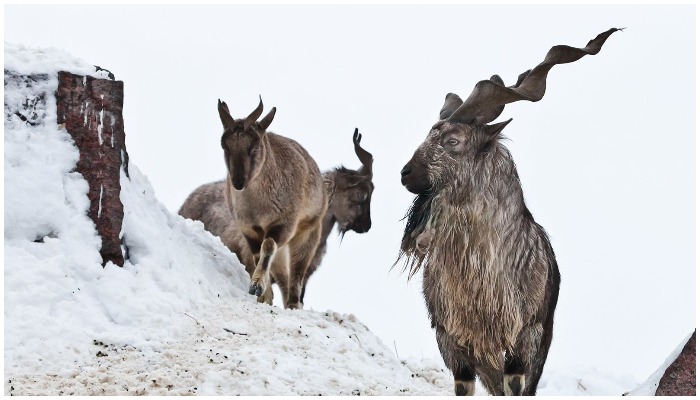
The Markhor (Capra falconeri) is a large, robust goat species known for its distinctive twisted horns, which can reach lengths of up to 65 inches. Its name, "Markhor," is derived from the Persian words "mar," meaning snake, and "khor," meaning eater, alluding to its ability to kill snakes with its sharp hooves and impressive agility.

This remarkable species is native to the mountainous regions of Central Asia, including Pakistan, Afghanistan, Tajikistan, and Uzbekistan. However, Pakistan is home to the largest and most stable population of Markhor, with their range primarily concentrated in the rugged terrains of the northern provinces, including Gilgit-Baltistan and Khyber Pakhtunkhwa.

Markhor exhibit striking sexual dimorphism, with males being considerably larger and heavier than females. Their coats vary in color, ranging from pale gray to reddish-brown, with a distinctive white "ruff" of fur encircling their necks, which becomes more pronounced in the winter months.

One of the most fascinating aspects of the Markhor is its behavior and adaptability. These goats are known for their impressive climbing abilities, enabling them to navigate steep and treacherous terrain with ease. They are primarily herbivorous, feeding on a diet of grasses, leaves, and shrubs, but their resourcefulness allows them to forage for food in regions where vegetation is scarce.

The Markhor is not only an icon of Pakistan's natural heritage but also holds cultural and ecological significance. In many local communities, it is revered as a symbol of strength and resilience, often featuring prominently in folklore and traditions. Ecologically, Markhor play a vital role in maintaining the balance of the fragile mountain ecosystems by controlling vegetation growth and providing a food source for local predators.
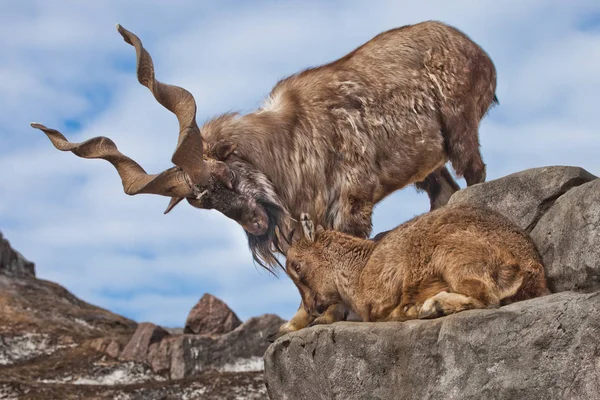
Despite their cultural and ecological importance, Markhor populations have faced numerous threats, including habitat degradation, poaching for their valuable horns, and conflicts with humans and livestock. Recognizing the urgency of the situation, Pakistan has implemented robust conservation efforts, including the establishment of protected areas and community-based conservation programs.
Furthermore, Markhor conservation has received international attention and support, with organizations such as the Wildlife Conservation Society (WCS) collaborating with the Pakistani government to protect and preserve these remarkable animals. These conservation initiatives have yielded promising results, with Markhor populations slowly rebounding in recent years.

In conclusion, the Markhor represents a living testament to the rich biodiversity and natural beauty of Pakistan's mountainous landscapes. Its striking appearance, unique behavior, and cultural significance make it a true symbol of the country's natural heritage. As conservation efforts continue, we can hope that these magnificent goats will continue to thrive and inspire generations to come, serving as a reminder of the importance of preserving our planet's precious wildlife.
#2
Feline Fascination: A Closer Look at Cats
Cats, those enigmatic and independent creatures, have captivated the hearts of humans for millennia. These charismatic felines have a unique place in our lives, offering companionship, comfort, and intrigue. In this article, we explore the world of cats, shedding light on their fascinating attributes and their enduring appeal.
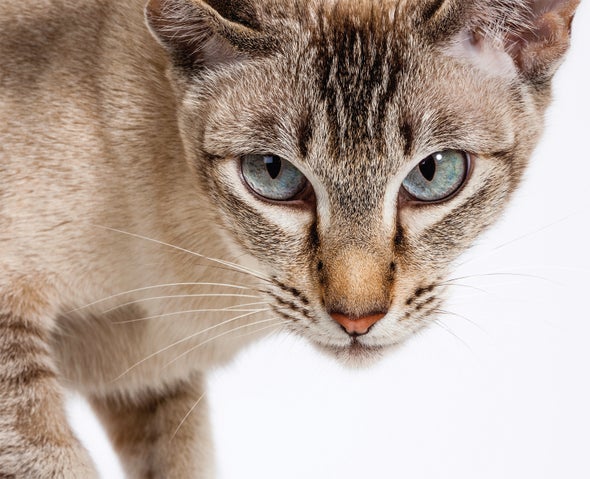
Cats, scientifically known as Felis catus, are small carnivorous mammals that have been domesticated for over 4,000 years. Originating from wildcats in the Middle East, they have spread across the globe, adapting to various climates and environments. Their adaptability is a testament to their remarkable survival instincts.
:strip_icc()/GettyImages-623368786-f66c97ad6d2d494287b448415f4340a8.jpg)
One of the most endearing qualities of cats is their independence. Unlike dogs, cats often retain a sense of self-sufficiency. They clean themselves meticulously, have a knack for finding their own food (even if it's a stray mouse), and prefer solitude at times. Yet, their selective affection and ability to form strong bonds with their human companions make them beloved pets.

Cats are also renowned for their agility and grace. With lightning-fast reflexes, they can pounce on a feather or dart across a room in pursuit of a laser pointer. Their sleek bodies and retractable claws make them formidable hunters, even if they're domesticated. This playful nature, combined with their innate curiosity, keeps their owners entertained and delighted.

Perhaps the most intriguing aspect of cats is their mysterious behavior. They are known for their vocalizations, from the soothing purr of contentment to the plaintive meow demanding attention. Their aloofness can quickly turn into affection, making them a constant source of surprise and amusement.
Cats have also played significant roles in various cultures and religions throughout history. In ancient Egypt, they were revered and considered sacred animals associated with the goddess Bastet. Even today, cats continue to be symbols of mystery, magic, and protection in many cultures.
In the modern world, cats have found their place not only in our homes but also on the internet. Funny cat videos and adorable kitten memes have become a global phenomenon, further cementing their status as beloved companions.
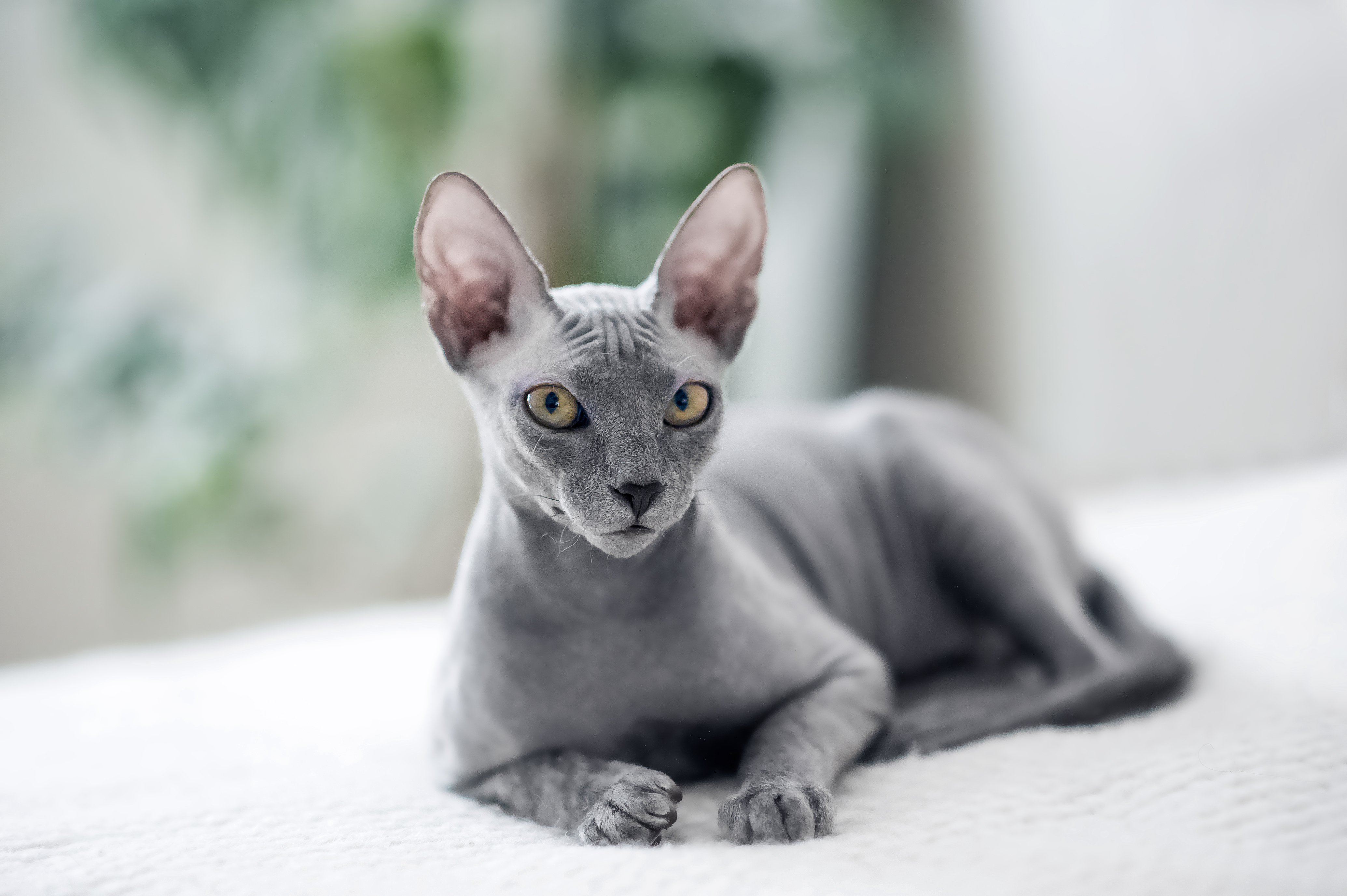
As we celebrate these enigmatic creatures, it's essential to recognize the responsibilities that come with cat ownership. Proper care, including regular veterinary check-ups, a balanced diet, and a safe environment, ensures that our feline friends lead happy and healthy lives.

In conclusion, cats are much more than just pets; they are intriguing, mysterious, and endlessly captivating companions. With their unique personalities and endearing quirks, they continue to be a source of joy and fascination for cat lovers around the world.
#3
The Noble Horse: A Timeless Bond with Humanity
Throughout history, one magnificent creature has stood tall, not only as a symbol of grace and strength but also as a steadfast companion in the journey of human civilization – the horse. In this article, we embark on a journey into the world of these magnificent beings, exploring their history, characteristics, and enduring connection with humanity.
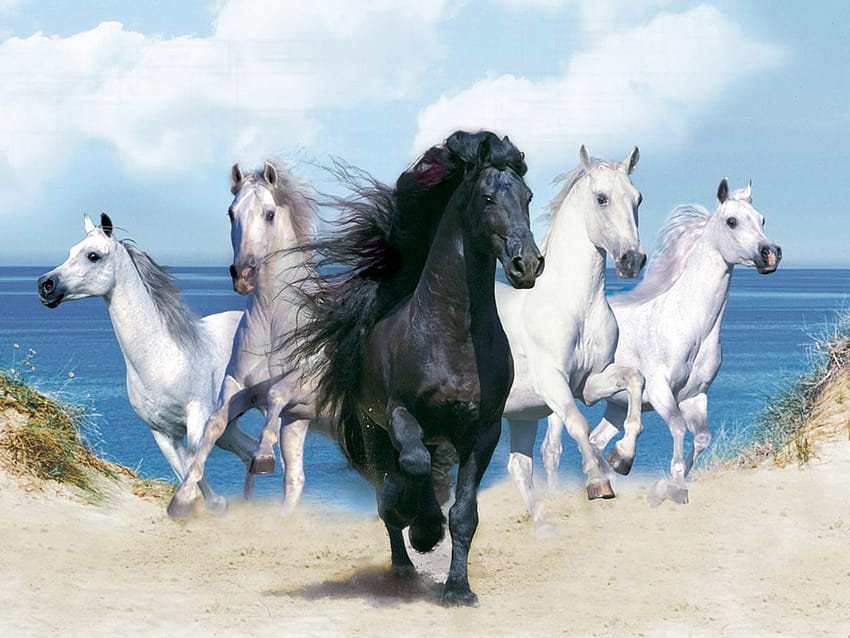
Horses, scientifically known as Equus ferus caballus, are large herbivorous mammals that have played an integral role in human development for thousands of years. Their domestication, which is estimated to have occurred around 4,000 to 6,000 years ago, marked a significant turning point in human history. It revolutionized transportation, agriculture, and warfare, opening new horizons for cultures around the world.
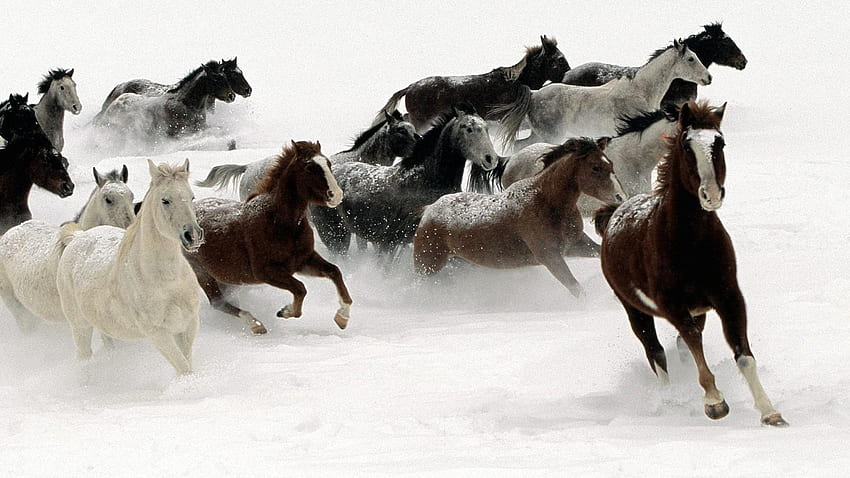
One of the most striking features of horses is their physical prowess. These majestic creatures typically stand between 4.5 and 6 feet tall at the shoulder, with powerful, muscular bodies that enable them to sprint at speeds of up to 40 miles per hour. Their long, flowing manes and tails add to their regal appearance, earning them the moniker of "noble steed."
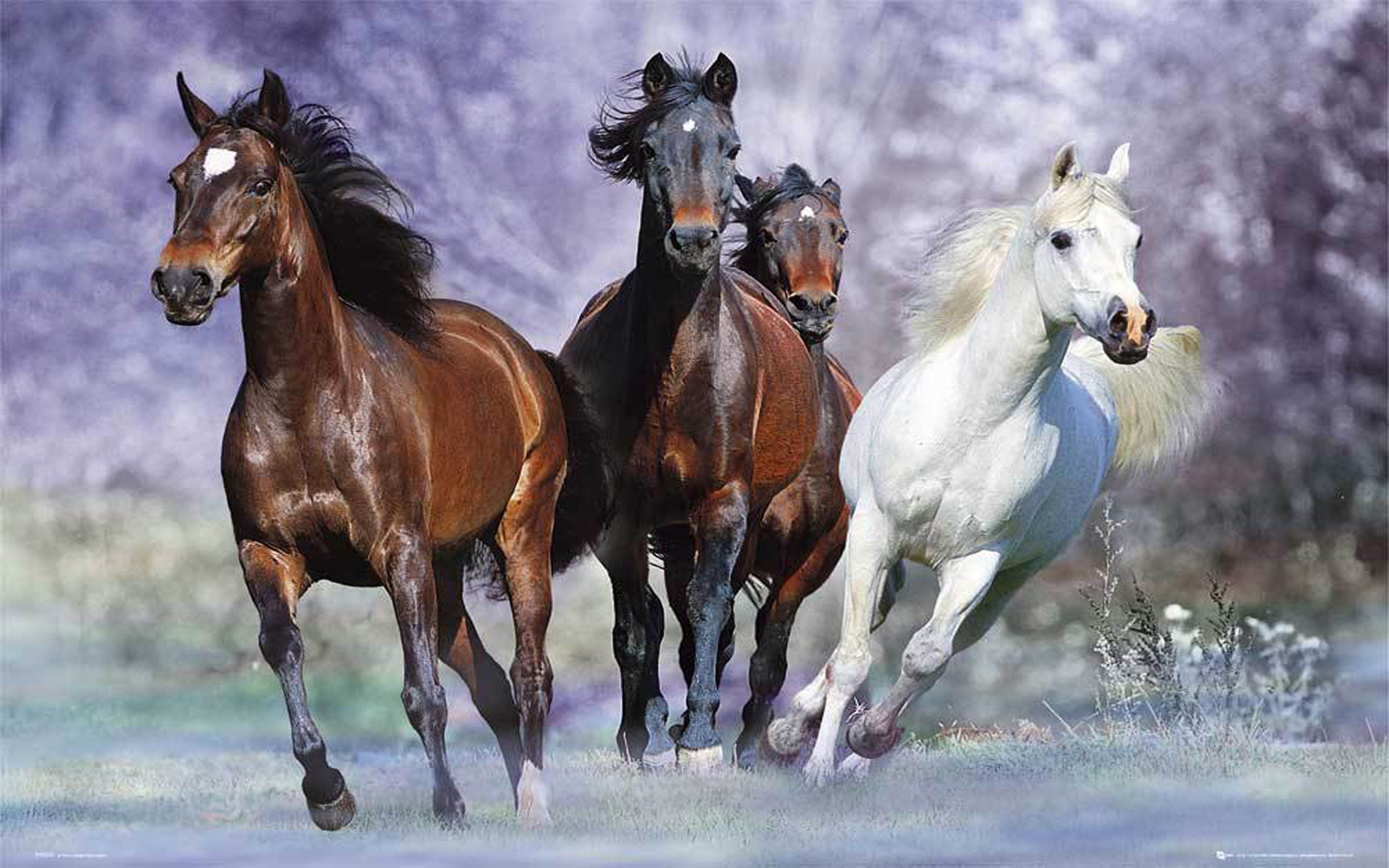
Horses come in various breeds, each with its unique characteristics and abilities. From the swift and elegant Thoroughbred to the strong and dependable Clydesdale, there is a horse breed tailored to almost any task, be it racing, working the land, or performing in equestrian sports.

One of the most profound aspects of the horse-human relationship is their capacity for bonding. The connection between humans and horses is built on trust, communication, and mutual respect. This bond is evident in various equestrian disciplines, such as dressage, show jumping, and rodeo, where horse and rider work in harmony to achieve remarkable feats.
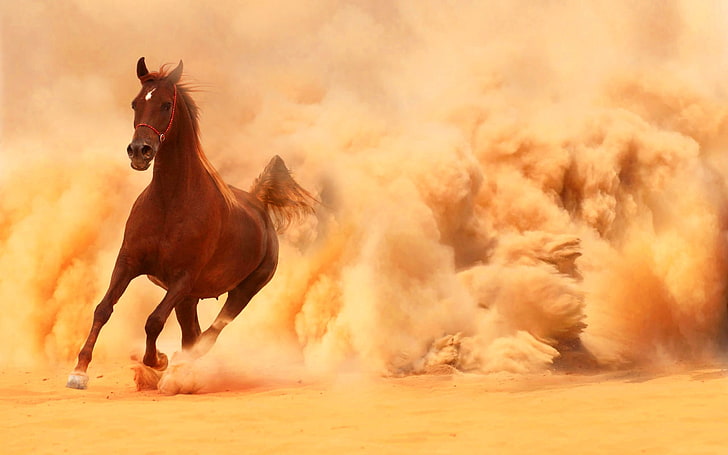
The horse's significance transcends its utility; it holds a revered place in cultures and traditions across the world. In Greek mythology, the horse is associated with Pegasus, the winged horse, and the centaurs, while in Norse mythology, Sleipnir is Odin's eight-legged horse. In Native American cultures, the horse transformed the way of life for many tribes, enabling them to hunt, travel, and wage war more effectively.
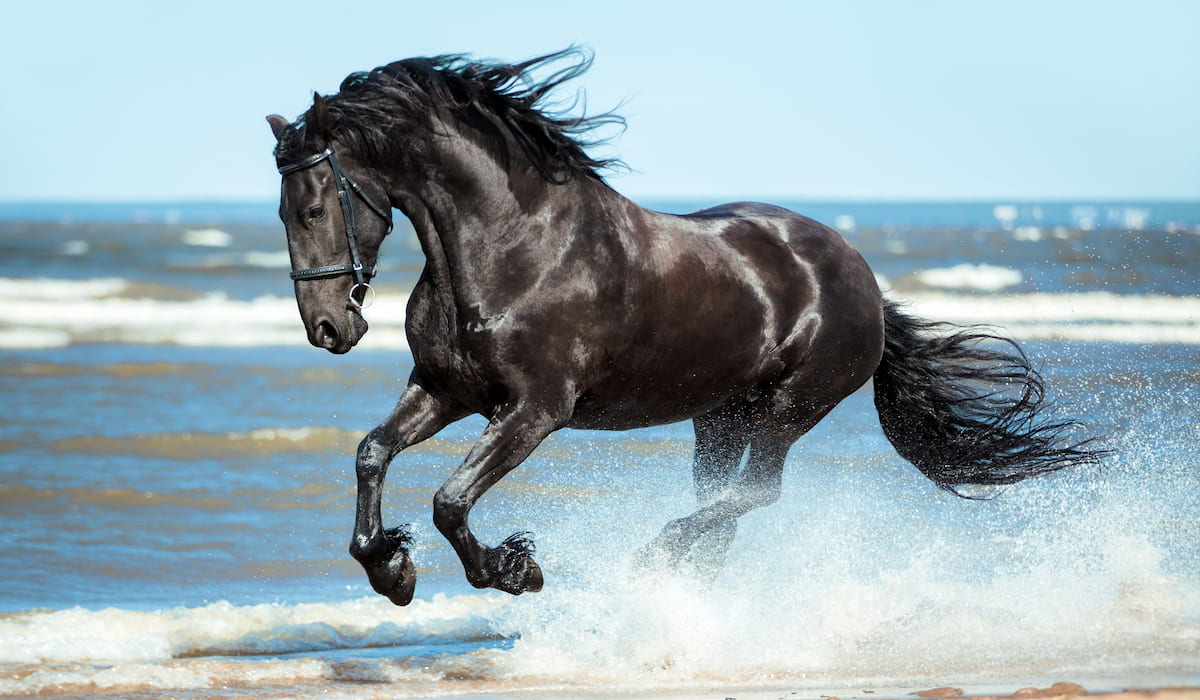
Furthermore, horses have been instrumental in times of conflict. In ancient warfare, cavalry units mounted on horseback provided a decisive advantage on the battlefield. Throughout history, armies have relied on the speed, strength, and endurance of horses for both transportation and combat.
![Free download Black horse in water hd wallpaper Download HD WallpapersHappy [1023x768] for your Desktop, Mobile & Tablet | Explore 46+ Black Water Wallpaper | Water Backgrounds, Water Droplet Wallpaper, Water Background](https://cdn.wallpapersafari.com/29/6/QgP4UJ.jpg)
In contemporary society, horses continue to play essential roles. They are beloved companions for leisure riding and sports, as well as therapy animals for individuals with physical or emotional challenges. Moreover, they are utilized in agriculture, assisting with tasks like plowing fields and herding livestock.

However, it's crucial to acknowledge the challenges that horses face today. Issues like overbreeding, neglect, and abuse can threaten their well-being. Responsible ownership, humane treatment, and conservation efforts are necessary to ensure the continued welfare of these remarkable animals.

In conclusion, horses are more than just beasts of burden; they are timeless symbols of grace, strength, and partnership with humanity. Their storied history, diverse roles, and enduring connection with humans make them a truly extraordinary species. As we appreciate the contributions of horses to our past and present, let us also commit to safeguarding their future, ensuring that the noble horse continues to inspire and enrich our lives.
#4
Dogs: Man's Best Friend and So Much More
Dogs, often referred to as "man's best friend," have been loyal companions to humans for thousands of years. Their unwavering loyalty, boundless affection, and remarkable versatility make them one of the most cherished and beloved animals on the planet. In this article, we explore the enduring bond between humans and dogs, shedding light on their characteristics and roles in our lives.

Scientifically known as Canis lupus familiaris, dogs are domesticated descendants of wolves. Their journey from wild canids to devoted domestic companions is a testament to the power of mutual cooperation and the unique bond forged between humans and animals.

One of the most remarkable qualities of dogs is their ability to form deep emotional connections with humans. They are known for their loyalty and devotion, often going to great lengths to protect and comfort their human companions. This bond is so profound that dogs can sense their owner's emotions and respond with empathy and support.

Dogs come in an astonishing variety of breeds, each with its own unique characteristics and talents. From the loyal and protective German Shepherd to the energetic and playful Labrador Retriever, there's a dog breed suited to every lifestyle and need. This diversity has allowed dogs to take on a wide range of roles in society.

Throughout history, dogs have been invaluable in various capacities. They have served as herders, hunters, and guardians of homes and livestock. In modern times, dogs play essential roles as working animals in search and rescue, police and military operations, and as service and therapy animals, providing comfort and assistance to individuals with disabilities.

Dogs also enrich our lives in countless ways. Their companionship can alleviate loneliness and reduce stress, contributing to improved mental and emotional well-being. Their playful antics and unconditional love bring joy and laughter to households around the world.

Moreover, dogs have a unique ability to connect with people of all ages, making them ideal family pets and therapy animals for children, the elderly, and individuals with special needs. Their gentle and understanding nature allows them to provide comfort and support in various healthcare settings.

In recent years, awareness of the importance of responsible dog ownership and animal welfare has grown. Proper care, including regular veterinary check-ups, a balanced diet, exercise, and socialization, is crucial to ensure the health and happiness of our canine companions. Additionally, spaying and neutering programs help control the dog population and reduce the number of homeless dogs.

In conclusion, dogs are more than just pets; they are loyal, loving, and multifaceted members of our families and society. Their enduring bond with humans, diverse abilities, and capacity to bring happiness to our lives make them truly remarkable creatures. As we celebrate our connection with dogs, let us also commit to their well-being and responsible ownership, ensuring that the timeless bond between humans and dogs continues to thrive.
#5
The Enigmatic Bears: Nature's Majestic Giants
Bears, the iconic giants of the wilderness, have captured the imaginations of humans for centuries. With their powerful presence, diverse species, and unique characteristics, these enigmatic animals have become symbols of the untamed natural world. In this article, we delve into the captivating world of bears, exploring their biology, behavior, and the crucial role they play in our ecosystems.

Bears belong to the family Ursidae and are found across various continents, with species like the grizzly bear in North America, the panda bear in Asia, and the polar bear in the Arctic. Each species has evolved distinct adaptations to thrive in its specific habitat.

One of the most striking features of bears is their physical appearance. They possess large, muscular bodies, strong limbs, and sharp claws. Their coats come in an array of colors, from the distinctive black fur of the black bear to the snow-white pelage of the polar bear. These features, coupled with their imposing size, make them formidable creatures in the animal kingdom.
:focal(754x423:755x424)/https://tf-cmsv2-smithsonianmag-media.s3.amazonaws.com/filer/17/9e/179e9866-ce5e-498a-bc38-1b6cc9818ca7/brown_bear_ursus_arctos_arctos_running.jpg)
Despite their imposing presence, bears exhibit a wide range of behaviors and personalities. Some are solitary, like the grizzly bear, while others, like the spectacled bear of South America, can be more social. Bears are known for their opportunistic feeding habits, consuming a variety of foods, including vegetation, fish, small mammals, and even scavenged carcasses.

Bears also play crucial roles in their ecosystems. They are often referred to as "keystone species" because their presence influences the entire ecosystem. For example, grizzly bears in North America help disperse seeds through their feces, which promotes plant growth and biodiversity. Additionally, their hunting activities help regulate prey populations, contributing to ecosystem balance.
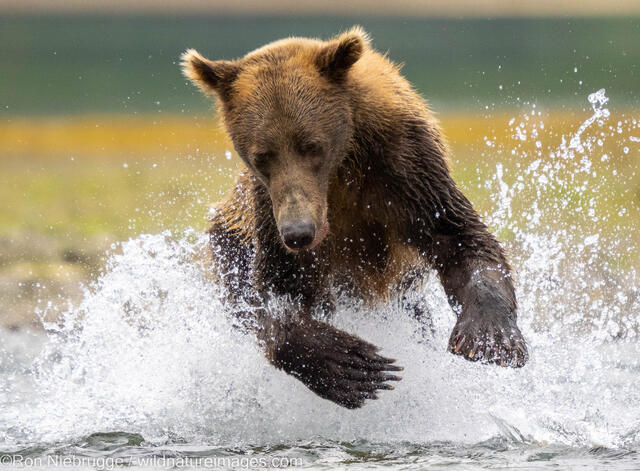
While bears have fascinated humans for centuries, their survival is now threatened by habitat loss, climate change, and illegal poaching. Several bear species are listed as vulnerable or endangered, emphasizing the urgent need for conservation efforts and habitat protection.

Efforts to conserve bears and their habitats are ongoing, with initiatives ranging from protected reserves to public awareness campaigns. Responsible tourism and coexistence strategies are also crucial for reducing human-bear conflicts and promoting the peaceful cohabitation of these remarkable creatures.
:max_bytes(150000):strip_icc()/getty-brown-bear-56afcf215f9b58b7d01d5195.jpg)
In conclusion, bears are a testament to the diversity and wonder of the natural world. Their strength, adaptability, and importance in maintaining ecological balance make them integral to our planet's health. As we continue to learn about and appreciate these majestic giants, let us also commit to protecting their habitats and ensuring a future where bears can continue to roam freely in the wild.




No comments